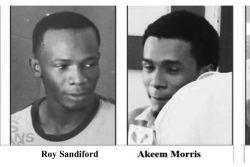WASHINGTON, (Reuters) – The United States will go after top al Qaeda leaders in Pakistan after consulting with Islamabad but does not intend to use combat troops on the ground there, President Barack Obama said in an interview aired yesterday.
“If we have a high-value target within our sights, after consulting with Pakistan, we’re going after them,” Obama said in an interview broadcast on CBS’s “Face the Nation” programme.
Asked if that meant putting U.S. troops on the ground in Pakistan, Obama said: “No. Our plan does not change the recognition of Pakistan as a sovereign government. We need to work with them and through them to deal with al Qaeda. But we have to hold them much more accountable.”
Richard Holbrooke, Obama’s special envoy to the region, underscored the point in an interview later on CNN’s “State of the Union,” saying: “There cannot be American combat boots, combat troops on the ground in western Pakistan.”
Obama made his comments in an interview conducted yesterday, the day he announced a new war strategy for Afghanistan that called for the elimination of al Qaeda militants he said were plotting attacks on the United States from the rugged region along the Afghan-Pakistan frontier.
The plan called for another 4,000 U.S. troops to help train the Afghan army, in addition to the 17,000 combat troops he ordered to Afghanistan ahead of elections in August. Spending on the conflict is expected to rise 60 percent from the current $2 billion per month, officials said.
“What we want to do is to refocus attention on al-Qaeda,” Obama said. “We are going to root out their networks, their bases. We are going to make sure that they cannot attack U.S. citizens, U.S. soil, U.S. interests and our allies’ interests around the world,” he said.
The strategy seeks to build trust and improve ties with an ally that Washington has at times supported and at times ignored but now sees as critical in the fight against the militant group that carried out the Sept. 11 attacks on the United States, U.S. officials said.
“The relationship between Pakistan and the United States is immensely complicated and it isn’t quite where it should be,” Holbrooke said.
“Clearly there has to be the establishment of true trust there,” added Gen. David Petraeus, head of U.S. Central Command. “We’ve had ups and downs between our countries over the years. We’ve now got to get on an up and stay on an up with them.”
To uproot al Qaeda, Obama said, the United States had to ensure it could not find a base in Afghanistan or Pakistan from which to organize attacks. He said Washington also needed to convince average Pakistanis that the struggle with extremists was not just a U.S. war.
“One of the concerns that we’ve had building up over the last several years is a notion, I think, among the average Pakistani, that this is somehow America’s war and they are not invested,” Obama said.
“What we want to do is say to the Pakistani people — you are our friends, you are our allies. We are going to give you the tools to defeat al Qaeda and to root out these safe havens, but we also expect some accountability,” he said.








